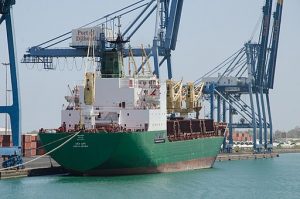These are some of the answers I gave when I was recently interviewed on Chinese overseas investments in Africa, Asia and Europe.

What is your take on China’s massive investments in ports and maritime infrastructure? What is China’s game plan?
Chinese investments in port infrastructure all around the world are another testament to the current geographical reorganisation of the global economy. Investments in overseas ports play a crucial role in China’s foreign trade policy, as they facilitate China-oriented value chains and growth. Seaports like the ones in Gwadar, Hambantota, Djibouti or Piraeus are crucial logistics hubs to facilitate trade and trans-shipment along the Maritime Silk Road. However, to assume that Chinese port investments form part of a meticulously planned grand strategy would be misleading. Chinese port and logistics companies, such as China Merchants and COSCO Shipping, are meanwhile global players in a highly competitive market. They operate with a significant degree of independence from Beijing and, like their competitors, first and foremost aim at profit maximation.
Are the investments paying off?
Port investments are long-term investments and ultimately depend on growing regional and global trade volumes. Where Chinese firms have gotten involved in the operation of ports, they have driven a hard bargain to ensure long-term profitability of their investments. Public-private partnerships to develop and manage ports usually have long concession periods and include provisions and state guarantees that shield the investor from revenue losses.
Nonetheless, the economic sustainability of Africa’s recent port infrastructure boom depends on how African economies will recover from the pandemic-induced recession. For major port investments in Africa to pay off, regional infrastructural links and growth in productive sectors are necessary. The enthusiasm amongst Chinese investors and African governments to develop mega-ports has in recent years certainly given way to more realistic cost-benefit analyses, not least due to rising debt levels and less rosy growth projections.
